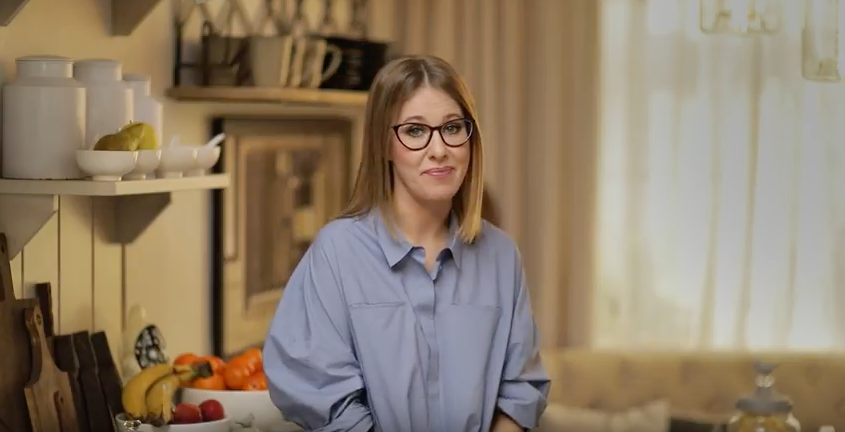- Russian socialist and TV personality Ksenia Sobchak announced she plans to run in a presidential election.She is positioning herself as a candidate “against everybody,” but some have pointed out that her bid is likely to split the opposition vote.
Russian socialist and TV personality Ksenia Sobchak said on Wednesday she plans to run in a presidential election next year, offering liberal voters unhappy with Kremlin rule someone to get behind, but with little prospect she will win.
“My name is Ksenia Sobchak, I’m 36 years old. And like any other citizen of Russia I now have the right to run for the presidency,” Sobchak said in a video clip posted online.
“I decided to exercise that right,” she continued. “Well, at least because I’m against everyone who usually exercises this right.”
Sobchak is positioning herself as a candidate “against everybody,” but some have pointed out that her bid is likely to split the opposition vote.
There have been rumors she would run for several weeks after Vedomosti newspaper cited sources as saying the Kremlin is considering putting a female candidate against Russian President Vladimir Putin.
Earlier in her career, Sobchak appeared in reality TV shows and posed in Russian Playboy. In 2011, however, she became a political activist and journalist, speaking at an opposition rally that December and later hosting a talk show on independent media TV Rain.
She is the daughter of the former St. Petersburg mayor, Anatoly Sobchak, who was Putin's mentor. He died in 2000.

The social-media savvy opposition leader Alexei Navalny also says he will also run in the presidential race. However, Navalny has been convicted of criminal charges - which he and his supporters say have been politically motivated - and is therefore by Russian law not allowed to run.
He has managed to appeal to a swath of voters across Russia and has organized protests across the country several times this year. Analysts said back in June that the geographic spread of the protests and the fact that many of the protestors were young were striking.
The most recent rallies, which were held earlier in October, attracted smaller crowds ranging from a few dozen to a few hundred people. Most of the demonstrations were not sanctioned by authorities.
Although analysts have highlighted the presence of younger Russians at the anti-corruption rallies, a Pew Research study conducted from mid-February to early April 2017 found that older Russians viewed the issue of corruption as more problematic than their younger counterparts, and were also less satisfied with the handling of the issue.
Putin has not officially announced whether he is running yet, although virtually everyone expects he will - and that he will win again come March 2018.
(Reuters reporting by Andrey Ostroukh; Writing by Christian Lowe; Editing by Andrew Osborn)
